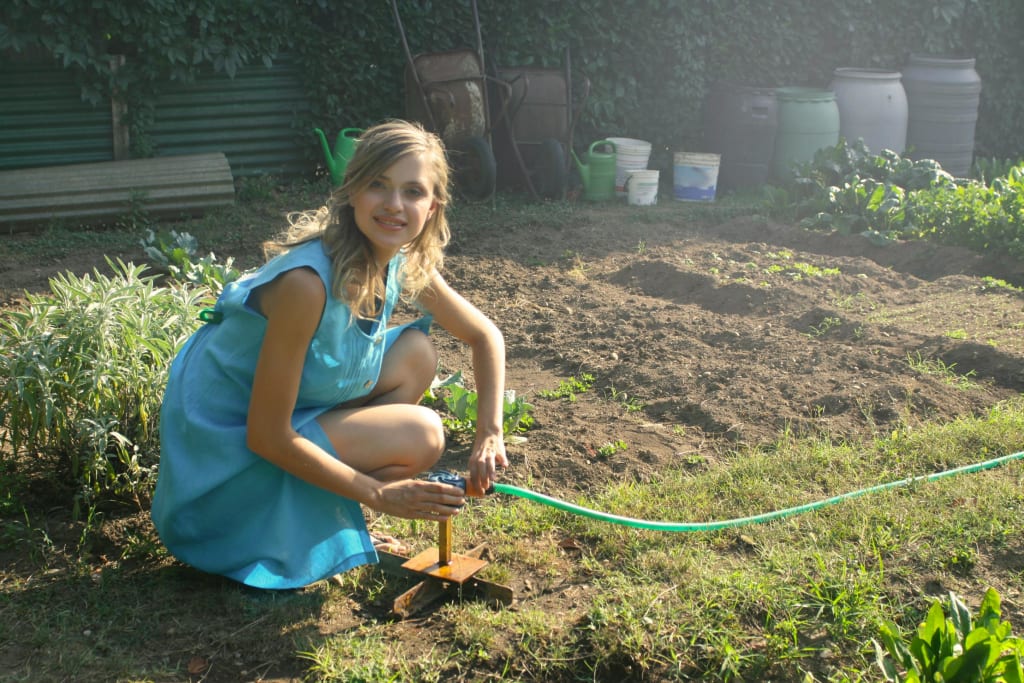Grow Your Own: Organic Gardening Practices for a Greener Lifestyle.
Discover the benefits of organic gardening practices and how they contribute to a more sustainable and eco-friendly lifestyle.

Benefits of Organic Gardening.
Organic gardening offers numerous benefits for both the environment and your health. By avoiding the use of synthetic pesticides and fertilizers, you can create a healthier and more sustainable ecosystem in your backyard. Organic gardening also promotes biodiversity by attracting beneficial insects, birds, and other wildlife to your garden. Additionally, growing your own organic produce allows you to enjoy fresh, nutritious food while reducing your carbon footprint.
Another benefit of organic gardening is that it helps to protect the soil. By avoiding the use of chemical fertilizers and relying on natural methods such as composting, you can improve soil structure and fertility over time. This leads to healthier plants that are more resistant to pests and diseases. Organic gardening also helps to conserve water by promoting the use of mulch and other water-saving techniques.
Essential Tools for Organic Gardening.
To practice organic gardening, you'll need a few essential tools. A good set of gardening gloves will protect your hands while working in the soil and handling plants. You'll also need a set of hand tools, including a trowel, hand fork, and pruning shears. These tools will help you with tasks such as planting, weeding, and pruning. Additionally, a watering can or hose with a spray attachment is essential for watering your plants.
Other useful tools for organic gardening include a compost bin or pile for recycling kitchen scraps and yard waste into nutrient-rich compost. A garden fork or tiller can be helpful for turning the soil and incorporating compost. Finally, a garden hose or drip irrigation system will ensure that your plants receive the right amount of water.
Composting and Soil Health.
Composting is a key component of organic gardening. It involves the decomposition of organic materials such as kitchen scraps, leaves, and grass clippings into nutrient-rich compost. Compost can be added to the soil to improve its structure, fertility, and moisture-holding capacity. It also provides essential nutrients for plants.
To start composting, you'll need a compost bin or pile. This can be a simple structure made of wire mesh or a more elaborate container designed specifically for composting. It's important to balance the carbon-rich materials (such as dry leaves or shredded newspaper) with nitrogen-rich materials (such as kitchen scraps or fresh grass clippings) to ensure proper decomposition. Turning the compost regularly will help speed up the process.
In addition to composting, there are other practices that promote soil health in organic gardening. These include avoiding the use of synthetic fertilizers and pesticides, using organic mulch to suppress weeds and retain moisture, and rotating crops to prevent the buildup of pests and diseases.
Natural Pest Control Methods.
One of the challenges of organic gardening is managing pests without the use of synthetic pesticides. Fortunately, there are many natural pest control methods available. One common method is to encourage beneficial insects, such as ladybugs and lacewings, which feed on pests like aphids and caterpillars. You can attract these beneficial insects by planting flowers that provide nectar and pollen, such as marigolds and daisies.
Another natural pest control method is using physical barriers, such as row covers or netting, to protect plants from pests. This can be particularly effective for preventing damage from insects or birds. Additionally, practicing good garden hygiene by removing plant debris and weeds can help reduce pest populations.
If pests do become a problem, there are organic pest control products available, such as insecticidal soaps or neem oil. These products are derived from natural sources and are less harmful to beneficial insects and the environment.
Harvesting and Preserving Your Organic Produce.
One of the joys of organic gardening is harvesting your own fresh produce. When it comes to harvesting, it's important to pick fruits and vegetables at the peak of ripeness for the best flavor and nutrition. Different crops have different signs of ripeness, so it's important to do some research or consult a gardening guide for specific instructions.
Once you've harvested your organic produce, there are several methods for preserving it. Canning, freezing, and dehydrating are popular preservation methods that can help you enjoy your homegrown produce throughout the year. It's important to follow proper food safety guidelines when preserving food to ensure its quality and safety.
In conclusion, organic gardening practices offer numerous benefits for both the environment and your health. By adopting organic gardening methods, you can create a more sustainable and eco-friendly lifestyle while enjoying the rewards of growing your own fresh and nutritious produce.
About the Creator
Enjoyed the story? Support the Creator.
Subscribe for free to receive all their stories in your feed. You could also pledge your support or give them a one-off tip, letting them know you appreciate their work.






Comments (2)
Love the idea
Thank you for the interesting and delicious content. Follow my story now.